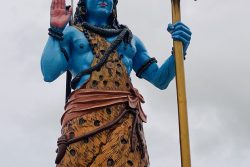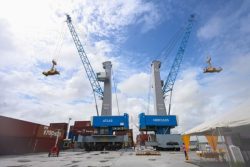Dear Editor,
Reference is made to Henry Jeffrey’s contention ‘Lincoln Lewis: reasoning away structures’ (SN June 28). The said article sought to deal with my known contention that persons, most notably politicians, are making statements about the Guyana Constitution and calling for reform without taking the time to know the instrument and putting mechanisms in place to make it work. In this particular instance the issue dealt with was the WPA’s call for reform and a promise in the APNU+AFC Manifesto to reform what already exists (the so-called Bill of Rights), and an absence of understanding of the role and function of the president and people in our society (‘There must be understanding of the issues before the constitution can be reformed’ SN, June 24).
The analogy drawn between me and a social theorist who in 1817 expounded some view which it is claimed has structural difficulty, resulting in it being deemed utopian has no nexus to the position being advanced. He spoke from an aspirational standpoint absent an existing structure. The premise from which I speak is based on an established structure that awaits life from the people it was designed to benefit. Unlike Dr Jeffrey I do not see deformities in the structure but in the refusal of persons to comply with the structure.
Let me make it very clear: no structure/system is perfect and finite as is evident from the provisions for amendment and reform, which too must be followed. This also recognises the importance of knowing and understanding the system and giving it a chance to work, which is not being done. The Constitution is blatantly being violated in areas that are straightforward, and is being cherry-picked to suit those in office who seem more interested in being ‘rulers’ rather than governing as the people’s representatives, as is required by this instrument. There remains no evident interest by the politicians in deepening and strengthening articles to advance and protect the people’s well-being.
There is disagreement with the view that progress and ‘unity’ are only possible when Indians and Africans, the PNC, PPP and other political parties are in the Cabinet in some shared government formula. This runs contrary to the structure and its required function. Elections are meant to secure the trust and confidence of the people in a competitive environment or ideas, achievements, and promises.
Article 149 protects every Guyanese from being discriminated against on the ground of race and 147 protects the right to freedom of association. It is racist in thinking and will be worse in action to consider the other races not deserving of being treated equally, or that the two races have a God-given right to make determinations for others. This anti-constitutional thinking also ignores the fact that conflict is a part of human behaviour which requires that there is a structure to manage and resolve it, and protect the weak from being abused by the strong. There remains an absence of interest and legislation to give life to Articles 147 and 149.
Under the constitutional model of power-sharing where seats are assigned and the executive decided according to the votes cast in a system of proportional representation, the opportunities for peaceful co-existence can be assured as long as there is respect for Articles 13, 38, 147, 149 and 149C. Since 1992 the people’s choice and will at the voting booth have become more pronounced, but continue to be ignored by the politicians after they have gotten into office. Look at the executive in the national, regional and local governments, and seats in the legislature.
The Leader of Opposition according to the Constitution is also part of the executive (Articles 110 and 184). The economic and political independence of the regions and local government authorities is assured in Chapter 7. Outside of PNC Minister Jeffrey Thomas in the 1990s the politicians have brought no bill to the National Assembly to provide for local government autonomy, and the presidency behaves as though not duty bound to pursue meaningful engagement with the Opposition Leader. This is not a structural problem but a refusal of the politicians to obey the structure.
The political system mandates “inclusionary democracy” (Article 13) but there is no regard or interest in giving meaning to this declaration of intent by fortifying its structure. When in opposition the politicians seek to practise and call for it, but when in office they trample it. Three instances can be cited:- i) the APNU and AFC lambasted the PPP/C government for not allowing them seats on state boards based on their electoral mandate, but given a chance to do differently they are behaving like the PPP/C government; ii) the regions, NDCs and towns where the PPP/C won this government does not want to respect the will of the people, but when in opposition cried foul when similar treatment was meted out to them; iii) the APNU and AFC decried the absence of consultation on issues of a national character, but in office are doing exactly what they condemned. These issues are not structural problems but non-compliance.
Right now there exists a coalition government, which following those who seek the non-constitutional shared government formula should have seen the promised love and unity. Instead this thing is becoming a hustle for self-serving interest and ganging up against the masses. This new hustle does not require of any party, outside of the main party, to have constituents. Anybody can now create a party or say they have a party and seek to cash in and further abuse the people and their resources.
With the record of the APNU+AFC and PPP/C putting them together as one government we the people would catch hell, including rank and file Africans and Indians, including those who maintain their independence and hold government to account. Let them be separate as required by the constitution/structure and serve as checks and balances to each other. What we are certain of, given what is taking place, is that since thief man doesn’t like see he mattie thief man with bag, they will scream on each other and help us to keep them in check.
The reference to “We the people” standing up and holding politicians accountable is driven by the consciousness that within our midst persons are unafraid to stand up to their race or party when a wrong is being committed and injustice is being meted to another. Similar human decency was seen by whites during the oppressive white run systems of slavery, indentureship and colonialism that helped the oppressed struggles to topple them and improve their conditions of work and living.
Yours faithfully,
Lincoln Lewis








